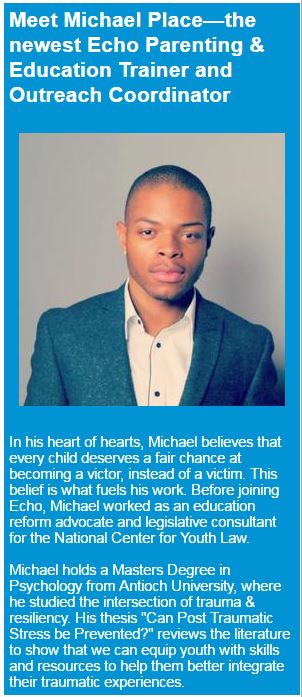
|
I recently came across an article in the NY times by Paul Seghal called “The Profound Emptiness of ‘Resilience” I must admit, if it wasn’t sent to me by my boss, I am not so sure I would have read it. Not because I would have never come across it, but because “The emptiness of resilience?” What could he mean? Why would you consider resilience “empty!” I noticed my pulse rising and my overall usually calm state a bit undone. I was visibly triggered by the title of this article… But why?
After some thought, it came to me — resiliency is very personal to me. You see, I spent nine years in foster care and in those nine years, I witnessed and endured things I wish no one would— especially not another child. But it was resiliency that brought me through and resiliency, for me, was never empty. It was powerful, multidimensional, obscure maybe, but never empty. Even with all of this in mind, I had a new job and a boss to respond to, so I continued to read on and eventually my intense and immediate defenses subsided and I began to see Paul’s point.
Paul was right, resiliency can be profoundly empty when it places “all the burden of success or failure on a person’s character.” For those of us who have experienced childhood adversity or know about the science of childhood trauma, we know that it is not a lack of character that determines whether a person succeeds or fails but what happened to them and what environments they were in during critical periods of development.
Resiliency can also be empty when it is seen as the ability to endure adversity silently and stoically. True resiliency is all about practicing skills, such as the ability to advocate for yourself. Paul mentioned that psychologist Peter Gray saw an increase in university students seeking help and apparently having emotional crises over, “problems of everyday life” as a sign of “declining student resilience.” Hmm. Perhaps he meant declining student emotional stamina? Or emotional strength? He couldn’t have meant declining student resilience, because the very act of reaching out for support, or speaking up about things that bother you, is an expression of resilience.
 Allow me to explain: While in care, I often spoke up about living conditions that I just didn’t think were acceptable. Now some may say that I should have been grateful that someone took me in and provided me with food to eat and a bed to sleep in. I was grateful, but being grateful didn’t mean that I should have accepted the abusive name calling one foster mom provided, or the roach infested, unsanitary, living conditions another provided. Even as a kid in foster care, I knew my value and my worth and I absolutely wasn’t willing to accept anything less. So I spoke up about what bothered me and as a result, things changed. What this did, was provide me with a sense of control over my environment, which is absolutely key to building self sufficiency and avoiding intense traumatic responses. Since foster care, I have gone on to gain a Master’s degree and now am working for Echo, the organization of my dreams.
So is true resiliency just about self advocacy and other skills that you can teach to any child? Absolutely not; building resiliency is a process and its foundation is what Echo’s work is all about creating – a “protective and healing relationship with a loving caregiver.” You may have wondered where my strong sense of self worth came from, where I got the courage and the know how to speak up for myself. Well believe it or not, it came from my mother, my biological mother.
Although not exactly the safe, stable relationship Echo emphasizes (she battled with a drug addiction), my relationship with my mother was certainly one filled with love. She would always tell me that I could be anything I wanted to be in life, so long as I worked hard for it, and I believed her. We all need someone to believe in us, to make us feel special and loved. My mother provided that for me at a crucial stage of my development and it made all the difference. It is my honor to be a part of an organization that helps parents and those who work with children foster relationships and build skills that can combat trauma and develop true, lasting resiliency.
—Michael |


